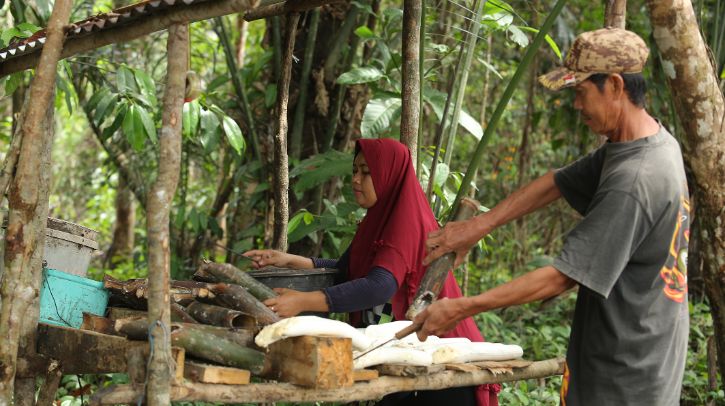Continental’s project to enhance sustainability in smallholder natural rubber cultivation with the Deutsche Gesellschaft für Internationale Zusammenarbeit (GIZ) has been extended by three years.
Since 2018, around 5,000 local smallholders in West Kalimantan, Borneo and Indonesia have been trained to cultivate high-quality natural rubber in line with clearly defined sustainability criteria.
By 2027, a further 1,000 smallholders are predicted to be involved in the project, which is co-funded by Continental and the German Federal Ministry for Economic Cooperation and Development (BMZ).
The smallholders’ income has increased by an average of 27% since the start of the project.
Dr Michael Radke, head of sustainability in purchasing at Continental, said, “As one of the largest tire manufacturers in the world, we have a particular responsibility in the natural rubber supply chain. That is why we are committed at all levels and are building capacity locally. Over the past few years, together with GIZ, we have shown that we can make the natural rubber supply chain transparent and at the same time increase farmers’ incomes. Now we want to reach even more smallholders and create the framework conditions for the successes achieved to be sustained.”
The project in the Indonesian district of Kapuas Hulu addresses two key challenges in natural rubber cultivation: lack of knowledge and insufficient income for farmers. The training provided by Continental and GIZ teaches farmers sustainable cultivation methods and agricultural practices. This improves the quality of the rubber, increases yields, optimizes the supply chain and boosts the income of the rubber farmers. The introduction of a digital traceability system also ensures transparency throughout the natural-rubber supply chain.
In related news, the executive board of Continental recently decided to make the ContiTech group sector independent. Click here to read the full story.



